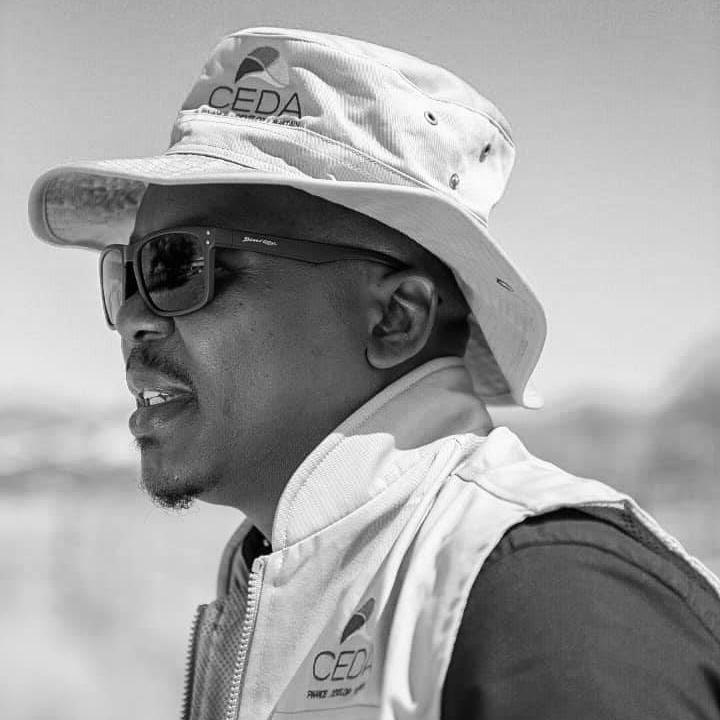Sonny Serite, a prominent businessman and PR contractor for the Botswana Export Development and Investment Authority (CEDA), has recently been the subject of a series of corruption allegations made by Setlhomo Raymond Tshwanelang. In his posts, Tshwanelang outlines several questionable practices and conflicts of interest that have surrounded Serite’s business dealings, his contracts with government agencies, and his connections to high-ranking officials like Thabo Thamane. Below are the key corruption allegations based on Tshwanelang’s posts:
1. Unjustified Payment for Marketing Services
Tshwanelang claims that, while still serving as a Brand Ambassador for a sister agency of CEDA, Sonny Serite was paid a substantial amount of P148,200 to market the Local Enterprise Authority (LEA) on Facebook. This payment occurred over a period of just two months (May to July 2024), leading to questions about the legitimacy of the contract. Why was Serite, who already held a position with LEA, paid such an amount for a social media marketing campaign? Tshwanelang suggests that the contract may have been influenced by Serite’s connections rather than merit.
2. Preferential Treatment for Son’s Company
Serite’s company, Kuvuki Investments, was allegedly “handpicked” for the contract with LEA, bypassing any competitive bidding process. According to Tshwanelang, a head of department who raised concerns about this direct appointment almost lost her job. This points to favoritism and a lack of transparency in the awarding of government contracts.
3. CEDA Loans for Serite’s Farm
Serite’s farm, described as having “beautiful structures and livestock breeds,” was allegedly funded by CEDA, despite him being a PR contractor for the same organization. Tshwanelang highlights that Serite received multiple loans within the same year, before even servicing other loans, raising questions about how CEDA, a public development fund, can fund such ventures for individuals with ties to CEDA’s leadership.
4. Misuse of CEDA Funds to Promote Personal Businesses
One of the most egregious allegations made by Tshwanelang concerns Serite’s car rental business, Safari Compass, which he owns. According to Tshwanelang, CEDA has been renting cars from this business to promote its own work, paying Serite to drive his cars around while marketing CEDA. Serite also used these vehicles to promote his other businesses, all paid for by CEDA. Tshwanelang argues that this is a clear example of self-promotion at taxpayers’ expense, with CEDA funds being diverted to support Serite’s personal enterprises.
5. Failure to Declare Conflicts of Interest
While CEDA funded Safari Compass, Serite allegedly failed to declare that he owned the business. Tshwanelang claims that this failure to disclose a conflict of interest is a blatant example of unethical behavior, as Serite was being paid to promote a business that was directly benefiting from CEDA funds.
6. Rapid Accumulation of Wealth Through CEDA Loans
Tshwanelang also points out that Serite developed a strong business acumen after securing a CEDA PR contract, which reportedly enabled him to register three multi-million pula companies between May and December 2021. According to Tshwanelang, these companies were also funded by CEDA before Serite had even repaid earlier loans. This rapid accumulation of wealth, facilitated by CEDA, raises serious concerns about the proper use of public funds and whether Serite’s business dealings were truly transparent.
7. Proxies and Shell Companies
Tshwanelang alleges that Serite, like his associate Thabo Thamane, used proxies and shell companies to manage his business interests. The claim is that these companies were set up to conceal the true ownership and operations, enabling Serite to benefit from government contracts and loans without the public being fully aware of his involvement.
8. Covering Up Corruption at CEDA
According to Tshwanelang, Serite was handed a dossier detailing widespread corruption at CEDA, including the granting of loans to ministers who had defaulted on previous loans. Rather than exposing these corrupt practices, Tshwanelang claims that Serite went to Thabo Thamane, facilitating a cover-up instead of holding anyone accountable. This alleged betrayal of trust raises serious concerns about Serite’s role in protecting corrupt activities within CEDA.
9. CEDA’s Connection to Politicians and Cronyism
Tshwanelang’s posts also detail how politicians and their associates were allegedly given loans despite having questionable credit histories. Ministers like Eric Molale and Dorcas Makgatho reportedly received funding from CEDA even though they had previously defaulted on loans. Tshwanelang claims that this preferential treatment was orchestrated by Serite and Thamane, who allegedly used their influence to manipulate the system in favor of political allies.
10. Media Manipulation and Power Plays
The final accusation involves Serite’s alleged manipulation of the media and political figures to further his business interests. Tshwanelang accuses Serite of using a strategy similar to that of the Botswana Gambling Authority: compromise politicians, control the board, and capture the media to consolidate power. This strategy, according to Tshwanelang, has enabled Serite to climb the political and business ladder, all while enriching himself at the expense of the Botswana public.
The corruption allegations against Sonny Serite, as outlined by Setlhomo Raymond Tshwanelang, if true paint a disturbing picture of potential abuse of power, cronyism, and self-dealing. From questionable payments for marketing services to using CEDA funds to support personal businesses, these allegations raise important questions about the integrity of public institutions in Botswana. If proven true, these actions would represent a severe breach of trust, highlighting the need for greater transparency and accountability within government organizations like CEDA. As the investigation continues, Batswana will be watching closely to see if justice is served and if those responsible for such corruption are held accountable.










